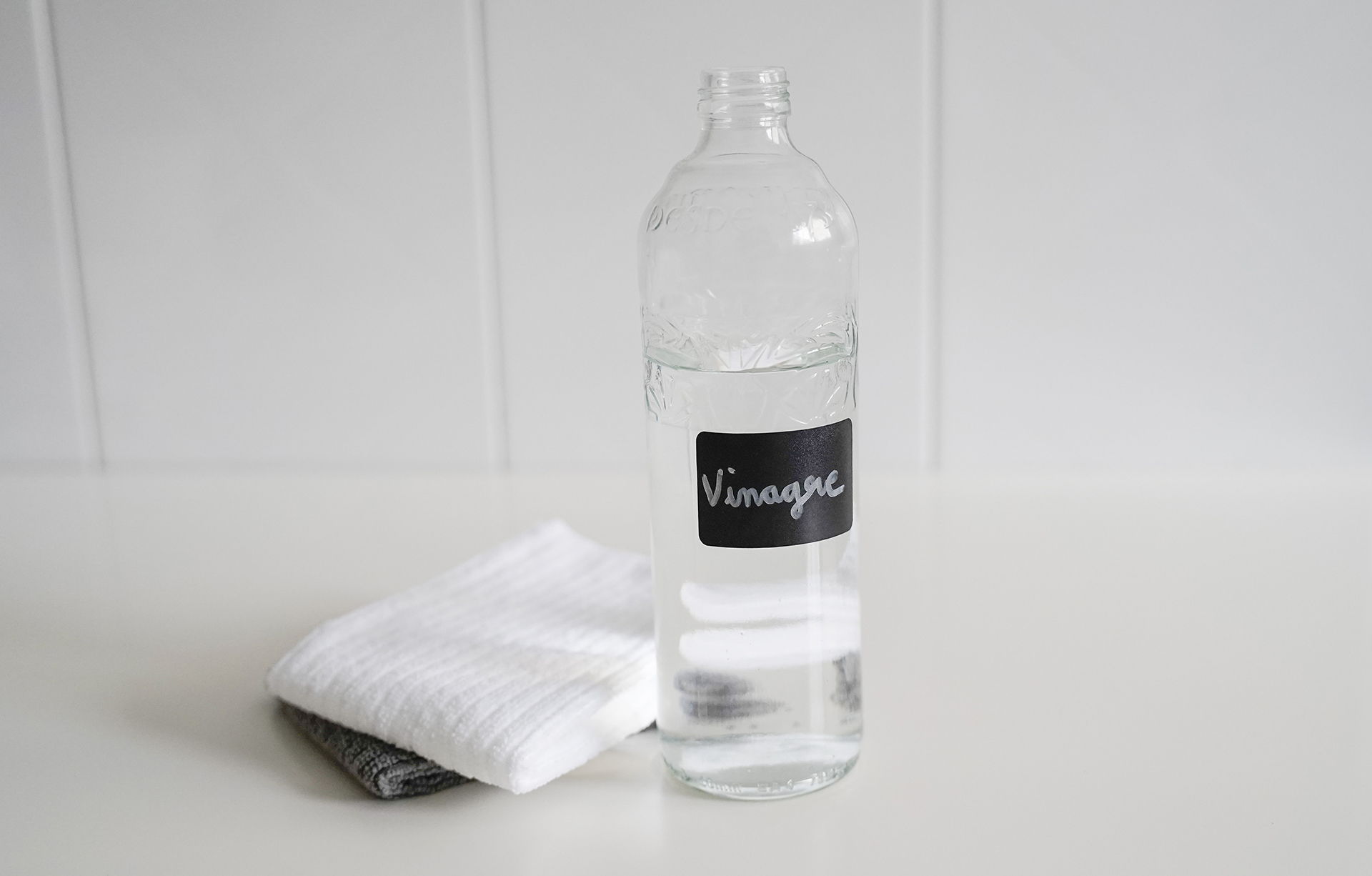What not to clean with vinegar – 10 items it can harm
These are the items that can be damaged by it, so find out what not to clean with vinegar


Design expertise in your inbox – from inspiring decorating ideas and beautiful celebrity homes to practical gardening advice and shopping round-ups.
You are now subscribed
Your newsletter sign-up was successful
Want to add more newsletters?

Twice a week
Homes&Gardens
The ultimate interior design resource from the world's leading experts - discover inspiring decorating ideas, color scheming know-how, garden inspiration and shopping expertise.

Once a week
In The Loop from Next In Design
Members of the Next in Design Circle will receive In the Loop, our weekly email filled with trade news, names to know and spotlight moments. Together we’re building a brighter design future.

Twice a week
Cucina
Whether you’re passionate about hosting exquisite dinners, experimenting with culinary trends, or perfecting your kitchen's design with timeless elegance and innovative functionality, this newsletter is here to inspire
Asking what not to clean with vinegar? While distilled white vinegar is recommended for a whole host of cleaning tasks, there are some items that definitely shouldn’t be cleaned with vinegar because it can damage them.
The pantry ingredient is a reliable way to clean many things around the house and cleaning with vinegar is often included in cleaning tips frequently include it because it’s non-toxic and inexpensive as well as effective. But vinegar is an acid, so while it’s ideal for some jobs such as removing limescale, the same action can cause harm to other surfaces.
Here, we’ve put together a list of the things you shouldn’t clean with vinegar (even if you see recommendations to do so by searching online). It could save you a whole lot of heartache.
What not to clean with vinegar
‘When it comes to house cleaning, vinegar is your natural ally,’ says Janice Stewart, co-owner of Castle Keepers, a residential cleaning company with locations in Charleston, SC, Greenville, SC and Atlanta, GA. ‘For instance, vinegar is possibly the best thing to use to remove hard water stains. But just because it’s natural, does not mean it’s risk-free. There are exceptions when using vinegar can cause more harm than good.’
You might be surprised by the list of what not to clean with vinegar. Here’s the lowdown.
1. Dishwashers
Thinking of using vinegar to clean a dishwasher? ‘This has become a popular DIY hack to clean your dishwasher, but it’s a big no-no,’ says home remodeling expert Marina Vaamonde, owner and founder of HouseCashin.
The reason is that vinegar can damage rubber, which is used for some of the parts of the dishwasher including the door seal. Instead, use a specially formulated dishwasher cleaner periodically to keep the dishwasher pristine.
Design expertise in your inbox – from inspiring decorating ideas and beautiful celebrity homes to practical gardening advice and shopping round-ups.
2. Stone countertops
If your kitchen countertops are made from real stone, swerve the vinegar to clean them up.
‘Avoid using vinegar on natural stones like granite and marble as the acid in the vinegar could not only dull the stone, but also cause spills to penetrate the surface of the stone leaving permanent stains and etching, since vinegar can easily damage any sealers applied to the stone surface,’ explains Janice Stewart.
3. Steam irons
Yes, it’s true that limescale can accumulate inside a steam iron but, even so, don’t reach for the vinegar to clean it. The reason is that typically there’s a coating inside which vinegar can erode, along with other materials used in the iron’s construction.
If it doesn’t self-clean, it’s time to dig out the manual or find it online and follow the manufacturer’s guidelines.
4. Hardwood floors
Stay away from vinegar when it comes to cleaning hardwood floors. ‘The acid could actually destroy the finish and make the wood more prone to damage, in addition to giving it a dull, cloudy look,’ says Janice Stewart.
Hardwood flooring manufacturers may stipulate that their floor shouldn’t be cleaned with vinegar and thus using it could invalidate the warranty on the floor.
And while we’re talking wood, vinegar shouldn’t be used on wood furniture either.
5. Stone flooring
What goes for stone countertops goes for cleaning stone floors, too. Vinegar is not the cleaner to use on stones like limestone, granite and marble. ‘Your flooring will eventually lose its shine because of the vinegar even if it’s diluted with water,’ says Edward Jones, managing editor of HomeCareHow.
6. Washing machines
Our cleaners need cleaning themselves from time to time and using vinegar for cleaning the washing machine is a recommendation you’re bound to hit on when you search. But, just as with the dishwasher, rubber seals and hoses can be damaged – and leaks the result – so use the service wash or the manufacturer’s recommended product.
Take note, too, that vinegar shouldn’t be used as a fabric softener or to get rid of stains either for just the same reason.
7. TV, tablet and smartphone screens
The way to clean a TV screen, and those on smartphones, tablets and so on is not with vinegar. Their protective coatings can be damaged. Instead, wipe with a microfiber cloth to get rid of dust, and if more cleaning is required, follow the manufacturer’s guidelines to be sure of avoiding harm.
8. Mirrors
Cleaning a mirror with vinegar might seem like a good idea – after all it’s great for cleaning windows and any glass when you’re cleaning a front door. Don’t do it, though. The vinegar can penetrate through to the mirror’s backing – which is what makes it shine.
Stick to a cleaning product that’s suitable for mirrors and use a microfiber cloth to apply it.
9. Knives
Keep vinegar away from kitchen knives if you want them to last. It could damage the finish. Dish soap in warm water is the answer if you want to keep them in good condition.
10. Coffee makers (or at least some of them)
Coffee machines can suffer from limescale buildup and cleaning a coffee maker with vinegar is an option to descale it (just like it’s an option for the tank when you’re cleaning a humidifier). ‘Many of us don’t buy descaling solutions to clean our espresso makers and turn to vinegar,’ says Yannis Tzortzakis, editor-in-chief at Baristas Choice.
‘While this is a cheaper solution, there are some important drawbacks. Most descaling solutions use citric acid because vinegar has a penetrating odor and taste. So, with vinegar, you’ll have to take many rinse cycles to remove lingering traces.’
Be aware of another possible downside to using vinegar. ‘Some manufacturers claim that vinegar can cause damage to the interior parts of an espresso machine,’ Yannis adds. If that’s the case, use it and you can invalidate the warranty.
Can you clean anything with vinegar?
There are some items you shouldn’t clean with vinegar to avoid damage or spoiling the finish. ‘Vinegar is about five per cent acetic acid, which helps it break down the structure of some dirt, oils, films, stains and bacteria. But that acidic agent can also harm some surfaces,’ explains Mindy Costello, a registered sanitarian and public health professional with global public health and safety organization NSF.
And if the purpose of cleaning is to disinfect, other options are more effective. ‘Be cautious when using vinegar to clean surfaces with a high risk of food contamination, such as cutting boards and refrigerator shelves/drawers,’ Mindy adds. ‘To disinfect these areas, it is recommended to use a bacteria-killing bleach/water solution or disinfectant.’
Will vinegar hurt a stainless steel sink?
Vinegar can be used for cleaning a stainless steel sink if limescale buildup is the problem. Make sure to use a 1:1 solution of distilled white vinegar and water. Spray it onto the sink, leave for a minute or two, then wipe and rinse. The solution shouldn’t be left on the sink for longer because it can damage the stainless steel in the long term.

Sarah is a freelance journalist and editor. Previously executive editor of Ideal Home, she’s specialized in interiors, property and gardens for over 20 years, and covers interior design, house design, gardens, and cleaning and organizing a home for Homes & Gardens. She’s written for websites, including Houzz, Channel 4’s flagship website, 4Homes, and Future’s T3; national newspapers, including The Guardian; and magazines including Future’s Country Homes & Interiors, Homebuilding & Renovating, Period Living, and Style at Home, as well as House Beautiful, Good Homes, Grand Designs, Homes & Antiques, LandLove and The English Home among others. It’s no big surprise that she likes to put what she writes about into practice, and is a serial house renovator.